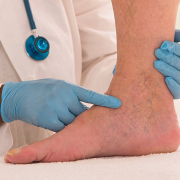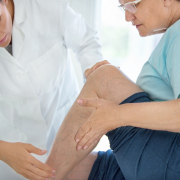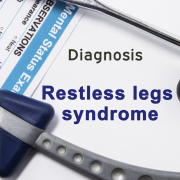Causes of Restless Leg Syndrome
Do you have this uncontrollable urge to move your legs, especially when you’re about to sleep? You could be having a condition known as restless leg syndrome (RLS), also called Willis-Ekbom disease.
While you may want to know what’s exactly causing these uncomfortable sensations in your legs that trigger an overwhelming urge to move them, that remains a mystery yet to be uncovered. Nonetheless, there has been substantial research done over the last few decades that reveals the contributing factors for restless leg syndrome. Let’s check them out:
Genetics
Restless leg syndrome tends to run in families. A significant percentage of patients with restless leg syndrome have at least one first-degree relative (parent or sibling) with the condition.
While research is still in progress, there are several gene variants (diversity in gene frequencies) associated with restless leg syndrome. Such is said to be the reason why some patients tend to develop it earlier in life.
Dopamine Imbalances
Some neurologists believe the symptoms of restless legs syndrome may also be associated with how the body processes dopamine.
Dopamine is a brain chemical messenger associated with smooth and voluntary muscular movement. Dopamine is produced within the basal ganglia, the part of the brain controlling movement. Dysfunctions impacting this area of the brain tend to cause difficulties in movements, such as those found in Parkinson’s disease.
Research evidence suggests that restless leg syndrome also arises from a similar mechanism. People with Parkinson’s disease have an increased risk of developing restless leg syndrome.
Hormonal Fluctuations
Restless leg syndrome is more prevalent in women than in men, and this is said to be attributable to the hormonal fluctuations in women. For instance, there are some women who experience symptoms of restless leg syndrome for the first time during their pregnancy, especially in their last trimester, but these usually subside after delivery.
Medical Problems Linked to RLS
In addition to the factors mentioned above, there are several medical problems that have been linked to the development of RLS. Listed below are some of them:
- Depression
- Diabetes
- Fibromyalgia
- Hypothyroidism (underactive thyroid)
- Iron deficiency
- Nerve damage
- Peripheral neuropathy
- Pregnancy
- Rheumatoid arthritis
- Uremia (a condition associated with worsening kidney function)
- Varicose veins
- Venous insufficiency (a condition in which your veins have problems transporting blood from your legs back to your heart)
Medications Linked to the Worsening of RLS
There have been studies that suggest that the following medications can exacerbate the symptoms of RLS:
- Antidepressants
- Allergy drugs
- Anti-nausea medications
Vein Care in Kansas City, MO
While the causes of restless leg syndrome may be complicated, working with a medical expert can help identify interventions that can mitigate the effects of the condition. For cases arising from vein disease, several interventions that improve blood circulation can help control the symptoms.
If you have been having symptoms of restless leg syndrome, schedule a consultation with us at Missouri Vein Specialists. Our providers can thoroughly evaluate your condition and come up with an appropriate treatment plan once they get an accurate diagnosis and confirm that this is caused by varicose veins or venous insufficiency.
To book an appointment with us, call us at 816-792-3400 or use this convenient online request form. We hope to serve your vein healthcare needs!












